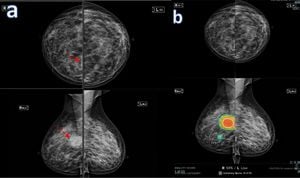A recent study has highlighted the potential of fiber reinforced polymer (FRP) anchoring cables to strengthen the stability of deep coal mine roadways, particularly as mining depths increase and geological conditions become more complex. Conducted at the Suncun coal mine, known to be the deepest coal mine in China, this research aims to address the pressing concerns around roadway safety and structural integrity.
The roof-cutting and roadway retaining (RCRR) technology presents significant advantages by eliminating the need for protective coal pillars, allowing for faster construction and enhanced economic value. Yet, its effectiveness hinges on the stability of the roadway roof, particularly under high ground stress and weak surrounding rock conditions.
The team's findings indicate the bearing strength of FRP anchoring cables can be significantly influenced by factors such as preload, cable length, and diameter. The study proposed several calculation formulas, demonstrating how increasing these parameters directly correlates with enhanced bearing strength and overall stability of the roadway roof.
Authors from various engineering disciplines contributed to this research, which emphasizes the urgent need for effective support mechanisms as China's mining operations extend to greater depths. One of the key takeaways from the study states, "Using high-strength and high preload FRP anchoring cables with grouting reinforcement can effectively insure the stability of the retained roadway roof." This statement encapsulates the core argument for employing FRP supports as part of modern mining operations.
Field tests conducted at the Suncun coal mine highlight the practical applications of these theoretical findings. The research revealed the calculated bearing strength of the FRP anchoring cables met, and even exceeded, the surrounding rock's stress levels, thereby confirming their suitability for deep roadway applications.
Another result emphasized by the study showed, "The bearing strength of the FRP anchoring cable increases linearly with the length and diameter of the grouting anchor cable." This relationship signifies how adjustments to these parameters can lead to improved safety outcomes, emphasizing the importance of well-planned designs for grouting anchor cables.
The comprehensive analysis presented not only assists engineers and geologists involved in mining but also contributes to the theoretical foundation supporting the development of safer and more effective mining practices. By employing high-strength anchoring and grouting to reinforce fractured surrounding rock, practitioners can consolidate broken rock masses, enhancing overall structural integrity.
Conclusively, this study does more than simply assess the bearing strength of FRP cables; it reveals the substantial benefits of integrating such technologies within current mining frameworks. With increasing mining depths becoming the norm rather than the exception, the implementation of innovative technologies like FRP anchoring cables is no longer just beneficial but necessary to secure the safety and efficacy of deep coal mining operations.



